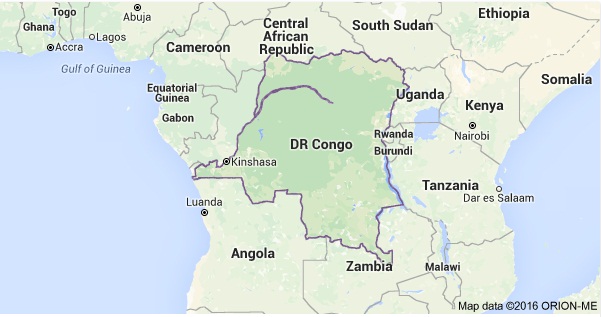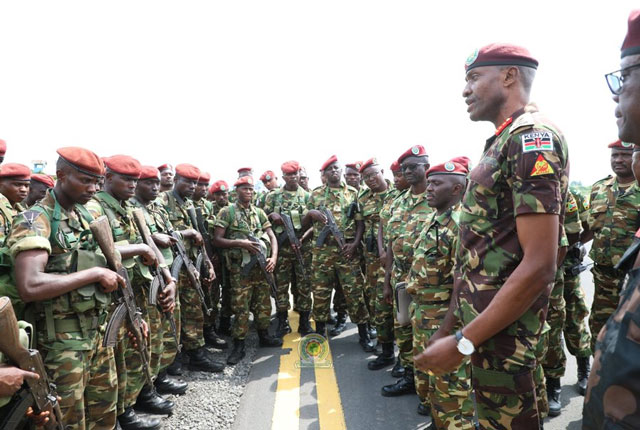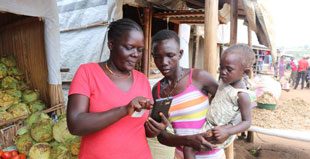
Why the deployment of international forces without addressing internal problems will achieve nothing.
THE LAST WORD | Andrew M. Mwenda | There is “fresh” fighting in the eastern Democratic DRC between government forces and the predominantly Tutsi rebel group, M23. I put fresh in inverted comas because DRC has been at war almost nonstop for the last 28 years. A lot of this has to do with structural conditions in that country: a vast territory, covered by huge and dense forests, inhabited by few people per kilometer, large mineral deposits and highly ethnically fragmented with over 500 ethnic groups always suspicious of each other and without a history of a strong centralised state.
Because of these factors, it has been difficult for elites in Congo to forge a national consensus on anything and build a strong state to fend off external interferences. For instance, Congo’s vast size and rich natural resources attract powerful external players. Contrary to popular beliefs propagated by those who control the instruments of global propaganda, the biggest players in extracting Congolese resources are not her poor neighbours. Poor countries don’t have the human, financial, military, technological and organisational resources to exploit Congolese minerals effectively.
It is the big multinational firms backed by their governments in North America, Europe, Israel and now increasingly China, UAE, etc. that are in the business of exploiting Congo. What is tragic is that ruling elites in Kinshasa profit from blaming Rwanda for their country’s seemingly intractable problems. They have therefore propagated an anti-Rwanda narrative to divert public attention from their own failures. But they have also now attracted interested parties, each with their own agendas, to come to their rescue – or so they think. As I write, foreign armies are being deployed in DRC to solve its problems. Of course it will not work.
Congo’s structural problems have been exacerbated by atrociously poor political leadership. For instance, when Felix Antoine Tshisekedi became president in 2018, he seemed to appreciate the fact that the problems of Congo are primarily internal. If there are external factors contributing to the crisis, it is because of internal incoherencies. The primary duty of the leader of Congo is to seek to solve the internal first so that he can minimise the influence of external actors. But along the way, Tshisekedi seems to have lost this belief and retreated to playing the usual card every Congolese leader has played since 1998 – blame Rwanda.
Every time Congo’s permanent crisis hits a new high, outsiders are called in to intervene. Countries in the region send in troops. Yet if this were to work, we would need the leaders in Kinshasa to play their part first. The UN has had a military mission in DRC for the last 25 years and yet the country seems to move from bad to worse. There is a time Angola, Zimbabwe, Namibia and Chad went into DRC to help the late Laurent Kabila and never succeeded in stabilising that country. In 2013 Tanzania and South Africa deployed forces in Eastern DRC to fight “subversive forces” and nothing came of it. Recently the East African Community deployed troops from Uganda, Kenya etc. to stand between the belligerents but Tshisekedi threw them out. Now South Africa and Tanzania are redeploying. Why keep doing the same thing and expecting a different
The problems of Congo are primarily internal. For instance, there is a large Tutsi community in Congo. The Congolese government refuses to recognise their citizenship, excludes them from the political process and backs claims by other ethnic communities in eastern DRC who want to grab their land. Worse than that, the Congolese government backs its own military and other ethnic militia to exterminate this ethnic minority. In response, the Tutsi citizens of DRC organised the M23 as a self-defense force against genocidal designs of the Congolese state and its local allies. Now these policies tend to pull Rwanda into the crisis.
In 1994, there was a against the Tutsi in Rwanda. The ruling party in Rwanda, the RPF, drew a significant share of its legitimacy from ending that genocide. The most powerful influence in the RPF is the Tutsi diaspora who liberated Rwanda from a Hutu supremacist and genocidal regime. Therefore, out of its own background and out of humanitarian considerations, there is no way the government in Kigali can sit on its arms as another genocide against Tutsi is orchestrated right across the border in DRC. If any government in Rwanda was indifferent to this problem or too stupid to intervene, it would face a crisis of legitimacy.

Secondly, those that committed the genocide against Tutsis in Rwanda ran to eastern DRC. There, they formed the FDLR, a violent rebel group committed to returning to power in Rwanda and finish its mission of exterminating Tutsis. This group exploits the vast geographical spaces of DRC (which gives them geographical-strategic depth), the rich mineral wealth of that country (which allows them raise money to finance their activities), the dense forests and swamps (to hide and slow down any enemy advance) and local jealousies against the Tutsi population (to whip up ethnic sentiments) to sustain itself in the DRC. Therefore, the FDLR poses an existential threat to Rwanda, giving Kigali a powerful interest in that country.
Thus, even if Kigali sought to be indifferent to the plight of Tutsi being exterminated in the DRC, it cannot ignore FDLR. It is therefore imperative that any leader or group of leaders in Kinshasa take note of these realities. Their first task would be to solve the internal Tutsi question. This would require them to recognise the Tutsi as citizens, protect their lives and property from the state and its ethnic allies, assure their position in the country and integrate them in the political process. Only such actions, if done genuinely and deliberately, can remove the rug from under the feet of the M23 and therefore curtail Kigali’s alleged influence.
The second step would be to deal with the FDLR. Kinshasa lacks the military capacity to fight and defeat the FDLR. But if its leaders are genuine, they can work closely with Kigali to eliminate FDLR. Rwanda has a formidable military machine. Kinshasa and Kigali can conduct joint military operations against FDLR. Tshisekedi tried this when he had just come to power in 2018 and the results were beginning to show. It would take time because of the structural factors which I have explained above that allow this rebel group to survive and thrive. But given commitment it would work. Tshisekedi should take this path or ignore it at his country’s cost.
*****

amwenda@independent.co.ug
 The Independent Uganda: You get the Truth we Pay the Price
The Independent Uganda: You get the Truth we Pay the Price




godfreykambere@gmail.com
Rebellion in post independent Congo dates from the days of Moise Tshombe and the likes of Pierre Mulele and the Simba rebels. Subsequent groups like the mai mai have been part of this fray. However the escalation of violence against unarmed civilians increased from 1994 up to date. The reason is simple. All eminent scribes espouse the notion that it is evil and dangerous to be Hutu and noble even a blessing to be Tutsi and armed. And for this warped thinking, millions of Congolese continue to perish far away from the cameras as everyone else blames Congo for being ungovernable. Yet if you look closer you will notice that Congo’s only crime I’d yo have violent neighbours. Angola(Unita) Sudan, Rwanda, Burundi, Congo Brazavile, Uganda.
Andrew, hello. Am desperately looking for u sir.
Businge/0752066789.